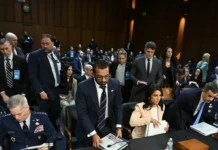While the 401(k) movement has been going strong for the past 30-plus years, it now looks like the investment managers who were administering the funds and providing the advice have been engaged in a conflict of interest with their company plan counterparts. At least that is what the U.S. Department of Labor’s Government Accountability Office now contends.
In a recent study, “Improved Regulation Could Better Protect Participants from Conflicts of Interest,” the GAO unit says that the financial services industry’s typical way of doing business. involving revenue sharing, (aka kickbacks to the plan administrator, record keeper, fund managers, custodians and anyone else getting a cash from the plan, create a conflict of interest. For 401(k) plan administrators, this DOL report poses a large problem.

Unfortunately, for millions of plan participants, this has been going on for years. The report also wants to understandably avoid making any estimate of the amount of money flowing back and forth here, but pension and 401(k) plan experts can secretly estimate among themselves that this figure could easily hit billions of dollars. That is money which, in some form, should have gone to the 401(k) plan participants themselves, commonly in the form of lower administrative plan expenses.
Of course, participants will never see a penny of it because revenue sharing is the grease which lubricates the machinery of many mutual funds and their sub-sets in the 401(k) plan business. This will only change if DOL regulations on fee disclosure go into effect.
Revenue sharing and other forms of advisor-paid-fees mask the lack of competition in the commoditized mutual fund business. Revenue sharing is the money which gets the attention of registered reps and brokers, who have to choose between hundreds of large cap growth funds, for instance, which pretty much have the same philosophies and performance. It’s also the sexiest part of any wholesaler’s presentation to a financial adviser.
That’s why a few special dinners, lunches, barbecue sets, golf accessories, “customer appreciation nights,” logo clothing and hard cash can make an objective evaluation of a dozen or so, very similar, large-cap growth funds alot easier. In the trade, this is a key part of the process known as “building relationships.”
The Importance of Revenue Sharing
In the 401(k) business, revenue sharing serves a similar purpose, but it can be used to reduce plan expenses or pay for the “education” of plan participants or the people who sit on the 401(k) board. In all cases, however, the payments prevent the free interchange of objective advice. This is not a legal event, but one tied to human nature. Everyone knows it is hard to fire someone you like personally.
That’s why corporations have HR departments which fire people. It’s only business, after all. Applied to the 401(k) world, the revenue sharing deals make it harder to fire a manager or record keeper, for instance, even when asked to provide a straighforward answer about the actual costs for administering the company 401(k) plan.
In one section of the report, the DOL says: “If left unchecked, conflicts of interest could lead plan sponsors or participants to select investment options with higher fees or mediocre performance, which, while beneficial to the service provider, could amount to a significant reduction in retirement savings over a worker’s career.”
Well said, but this practice has been going on for decades. Any financial industry veteran would have written: “Since this practice has been left unchecked for years, it has caused plan sponsors or participants to select options with higher fees….”
The revenue sharing money caused a conflict of interest because it is knowingly paid to influence decisions. That has the same intent as a bribe. This sounds odd, but most plan sponsors have no idea about how much they pay in hard-dollars to administer their own plan.
Maybe that hard-dollar answer is so elusive because of the revenue sharing cash sloshes freely, back and forth, between the plan sponsor and its plan porviders. This industry practice is so widely accepted that it eludes scrutiny. Imagine what would happen if a lowly purchasing agent was taking money from vendors, and could not answer how much cleaning supplies cost?
So kudos to Neil Weinberg of Forbes and the DOL for identifying this problem. Revenue sharing has been going on for decades in the mutual fund and 401(k) industries, and it has cost countless participants huge amounts of money. So the DOL’s reform is better late than never. But it’s too late for millions of retirees who could have used the money to retire and the objective advice.










